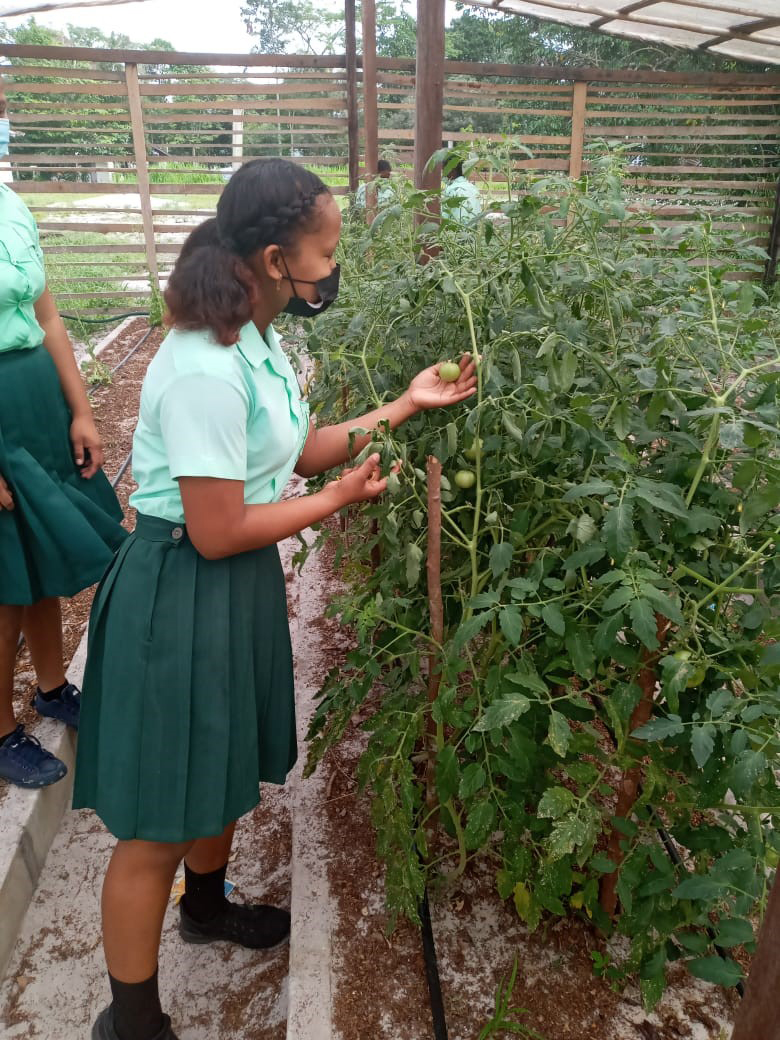A climate-smart pilot project that saw the construction of a shade-house and a poultry pen at the Dora Secondary School, situated along the Soesdyke-Linden Highway, is being lauded for exposing students to practical learning solutions.
The project, led by the Food and Agriculture Organization of the United Nations (UNFAO) and implemented under the Assisting Small Island Developing States (SIDS) Programme, is intended to contribute to enhancing food and nutrition security.
The school is located approximately 50 kilometres south of Georgetown in the Kuru Kuru community known for its white sandy soil, freshwater creeks, and forest coverage, which support livelihood activities like farming, logging and charcoal production. As a result, agriculture is a key component of the school’s curriculum. However, hands-on practical training in agricultural production could not be done previously due to several underlying constraints, such as inadequate space, tools and equipment.

